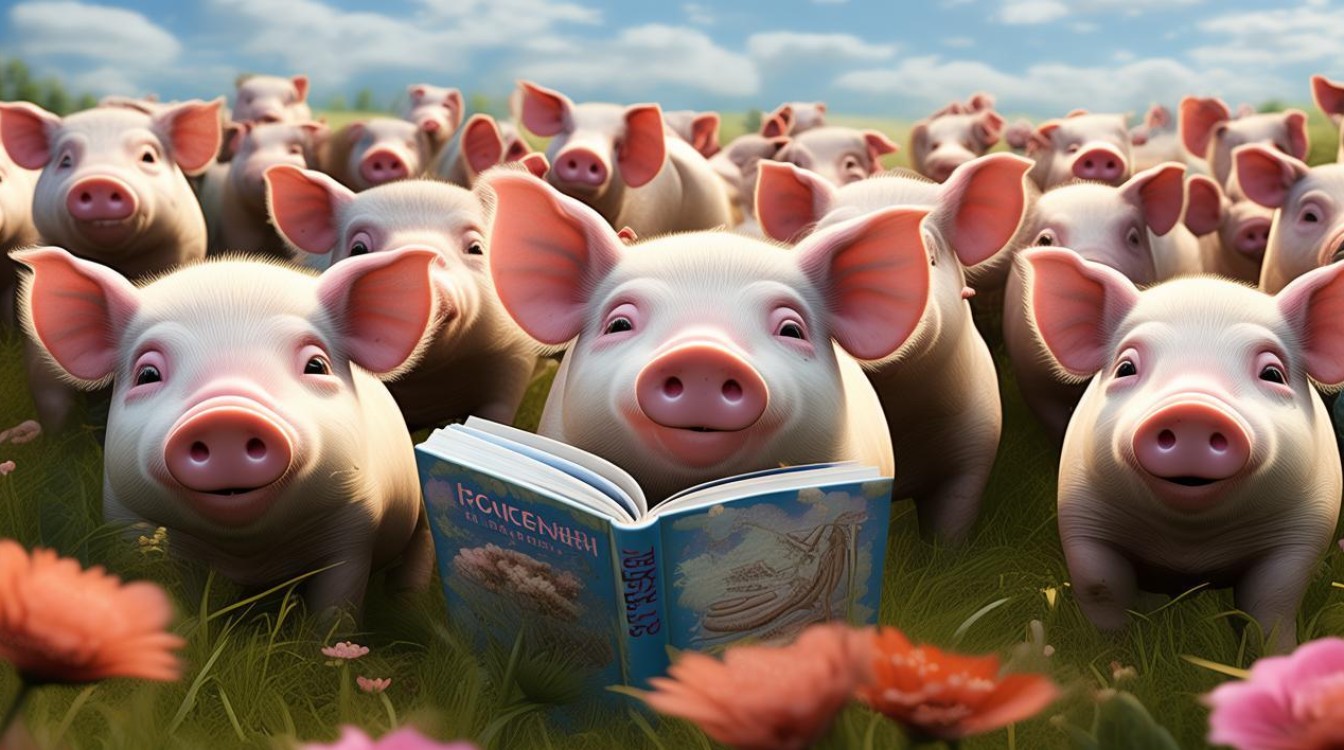Pigs have long held a special place in human culture, from folklore to farming. The English language reflects this relationship with a rich collection of words and phrases. Whether you're a language learner, a curious reader, or just someone who loves pigs, this guide will explore the fascinating world of pig-related vocabulary.

Basic Pig Terminology
Let’s start with the fundamentals. Here are the most common words used to describe pigs in English:
- Pig: The general term for the animal, often referring to young or domesticated swine.
- Hog: Typically used for larger, mature pigs, especially those raised for meat.
- Sow: An adult female pig, particularly one that has given birth.
- Boar: A male pig, often referring to wild or uncastrated males.
- Piglet: A baby pig, usually under one year old.
- Swine: A more formal or scientific term for pigs, sometimes used collectively.
These terms are essential for understanding discussions about pig farming, biology, or even literature.
Pig Idioms and Expressions
Pigs feature prominently in English idioms, often symbolizing greed, messiness, or stubbornness. Here are some popular ones:
- "When pigs fly": Means something will never happen.
- Example: "He’ll clean his room when pigs fly!"
- "Pig out": To eat excessively.
- Example: "We pigged out on pizza last night."
- "Sweat like a pig": To perspire heavily (though pigs don’t actually sweat much).
- Example: "After the workout, I was sweating like a pig."
- "In a pig’s eye": An expression of disbelief.
- Example: "You finished the project already? In a pig’s eye!"
- "Pig-headed": Stubborn or unwilling to change an opinion.
- Example: "He’s too pig-headed to admit he was wrong."
These phrases add color to everyday speech and reveal cultural attitudes toward pigs.
Pig Breeds and Their Names
Different pig breeds have unique names, often reflecting their origins or characteristics. Some well-known breeds include:
- Yorkshire: A large, white pig commonly raised for meat.
- Duroc: Known for its reddish-brown color and fast growth.
- Berkshire: A black pig with white markings, prized for flavorful meat.
- Tamworth: A ginger-colored pig, excellent for outdoor farming.
- Pot-bellied pig: A smaller breed, often kept as a pet.
Understanding these breeds helps in discussions about agriculture, animal husbandry, or even pet ownership.

Pigs in Literature and Media
Pigs have starred in countless stories, from children’s tales to political satires. Some famous examples:
- "Charlotte’s Web" (E.B. White): Features Wilbur, a pig saved by a spider’s cleverness.
- "Animal Farm" (George Orwell): Uses pigs as symbols of power and corruption.
- "Babe" (Film): A heartwarming story of a pig who becomes a sheepdog.
These works show how pigs can represent innocence, intelligence, or even tyranny.
Pig-Related Words in Science and Medicine
Pigs play a crucial role in science due to their biological similarity to humans. Some key terms include:
- Xenotransplantation: Using pig organs for human transplants.
- Porcine: The adjective form of pig (e.g., porcine tissue).
- Swine flu: A respiratory disease that originated in pigs.
Medical advancements often rely on pigs, making these terms important in health discussions.
Pig Symbolism Across Cultures
Different cultures view pigs in contrasting ways:
- Western cultures: Often associate pigs with gluttony (e.g., "eating like a pig").
- Chinese culture: Pigs symbolize wealth and prosperity (Year of the Pig).
- Middle Eastern and Jewish traditions: Pigs are considered unclean in dietary laws.
These perspectives influence how pig-related words are used globally.

Fun Pig Slang and Nicknames
Pigs inspire playful language, especially in slang:
- "Piggy bank": A container for saving coins, shaped like a pig.
- "Guinea pig": Metaphorically, someone who is tested on (though guinea pigs are rodents).
- "Pigpen": A messy person, named after the "Peanuts" character.
These terms show how pigs permeate casual speech.
Pig Vocabulary in Food and Cooking
Pigs provide many popular foods, each with specific names:
- Bacon: Cured pork belly or back cuts.
- Ham: Cured pork from the hind leg.
- Pork chop: A cut from the loin.
- Sausage: Ground meat mixed with spices.
- Prosciutto: Dry-cured Italian ham.
Knowing these terms enhances culinary discussions.
Pig-Related Verbs and Actions
Some verbs are directly tied to pigs:
- Rooting: Pigs dig with their snouts.
- Wallowing: Rolling in mud to cool off.
- Grunting: The sound pigs make.
These words help describe pig behavior accurately.

Pig in Compound Words
English combines "pig" with other words for specific meanings:
- Pigsty: A dirty or chaotic place.
- Pigskin: Leather made from pig hide; slang for a football.
- Pig iron: Crude iron from a blast furnace.
These terms demonstrate the versatility of pig-related vocabulary.
Pigs are more than just farm animals—they’re linguistic treasures. From idioms to science, their influence on English is vast. Whether you’re learning the language or just love pigs, these words offer a glimpse into how humans and pigs have shaped each other’s worlds. Next time you hear a pig-related phrase, you’ll know exactly what it means.

